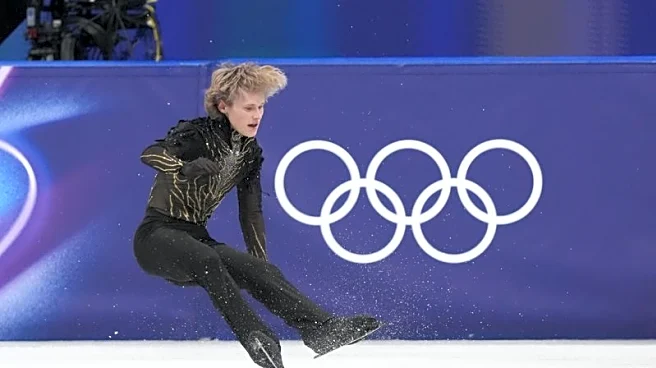What's Happening?
Turkey trots, often held on Thanksgiving Day, are 5-kilometer races that attract over 1.1 million participants annually in the United States. These events are inclusive, welcoming individuals of all ages and fitness levels, with many participants opting
to walk rather than run. The races are characterized by a festive atmosphere, with participants often wearing costumes such as tutus and Thanksgiving-themed attire. Turkey trots serve as a community event, bringing together families and friends to enjoy exercise and camaraderie. They are considered a great entry point for those new to racing, offering a non-intimidating environment for participants.
Why It's Important?
Turkey trots play a significant role in promoting physical activity and community engagement across the United States. By encouraging participation from individuals of all fitness levels, these events help foster a sense of inclusivity and community spirit. They also serve as fundraisers for local charities, contributing to social causes while promoting health and wellness. The popularity of turkey trots highlights the growing interest in recreational running and walking as accessible forms of exercise, which can have positive implications for public health by encouraging more people to engage in physical activity.
What's Next?
As turkey trots continue to gain popularity, organizers may expand the scope of these events to include more diverse activities and distances, catering to a wider range of participants. Communities may also leverage these events to raise awareness and funds for local causes, further strengthening their impact. Participants can look forward to more resources and training programs designed to help them prepare for these races, enhancing their experience and encouraging continued participation in future events.
Beyond the Headlines
Turkey trots exemplify the potential for sporting events to serve as platforms for community building and social interaction. They offer an opportunity for individuals to connect with others, share experiences, and celebrate the holiday in a healthy and active manner. The emphasis on fun and inclusivity challenges traditional notions of competitive racing, highlighting the importance of exercise as a form of enjoyment and empowerment.

















